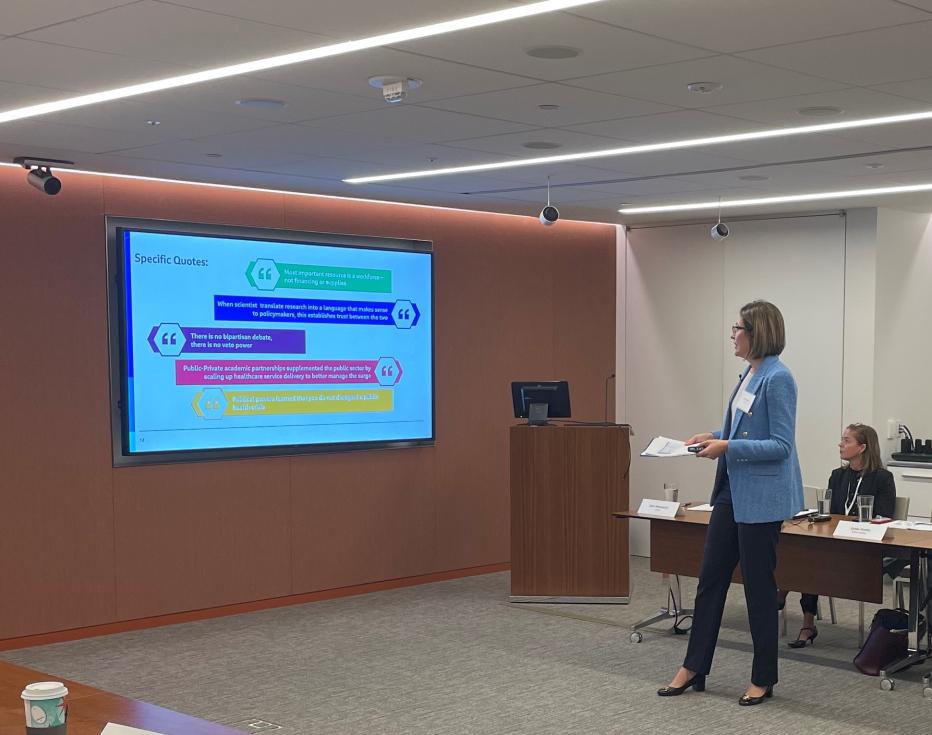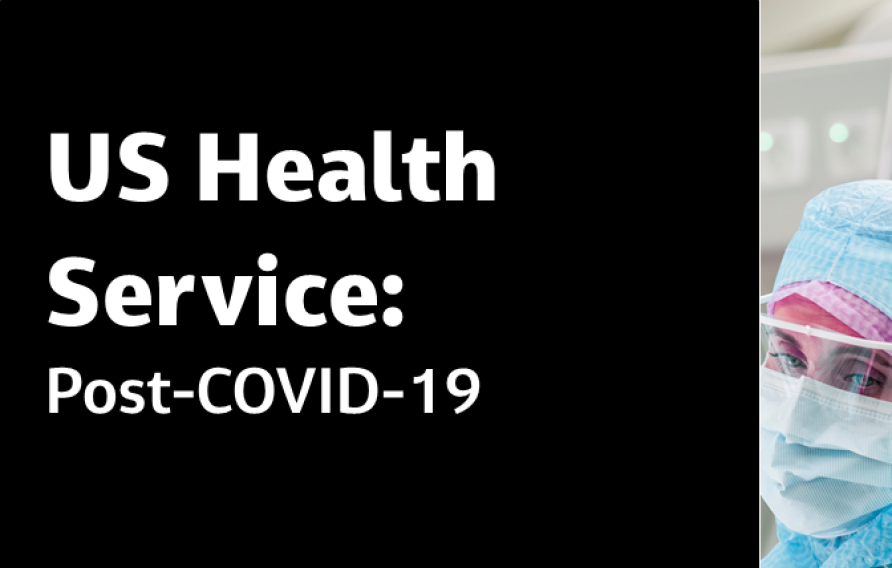
Certain countries fared better than many in response to the COVID-19 pandemic. What can Global North countries like the U.S. and countries in Europe learn from positive outcomes in the Global South: Central and South America, Africa and Asia? And how can the U.S. prepare for future pandemics and improve global health security? Jacobs conducted a limited study on more than 20 countries’ responses to COVID-19, shared preliminary findings during a roundtable with U.S. state and federal policymakers, and will publish a final report with recommendations in early 2023.
Studying success through stakeholder interviews
Jacobs, in partnership with the Milken Institute (MI), conducted a study into the critical factors that contributed to certain countries’ success during the COVID-19 pandemic. Its purpose was to identify the innovative approaches or overlooked success factors from experts around the world that were responsible for driving effective public health responses during the pandemic. The study represents a paradigm shift in the dynamic between Global North and Global South, in which outcomes in Global South countries can inform practices in the United States.
The team conducted more than 30 interviews with public health officials from more than 20 countries in Central and South America, Africa and Asia. These interviews illuminated success factors in governance, financing, resources, service delivery and previous experience with managing outbreaks.
Presenting findings through Roundtable to U.S. and International Participants
The team compiled Global South interview findings and presented them during a roundtable with policymakers from across the U.S. state and federal governments, including the White House, Department of Defense, the Centers for Disease Control and Prevention (CDC), United States Agency for International Development (USAID), Department of State, Department of Health and Human Services, the Association for State and Territorial Health Officials, U.S. Food and Drug Administration and the Center for Global Health Engagement.
During the roundtable, Jacobs and the Milken Institute fostered a dialogue between Global South interviewees via videoconference and the U.S. government participants, bringing international health officials directly into conversation with U.S. state and federal policymakers for a rich and wide-ranging discussion.
The participants exchanged reactions to the preliminary findings and discussed additional topics, including the critical role of data and data sharing for early decision-making; the challenges to state and federal cooperation; the importance of trust and transparency in public communication and engagement; and the power of logistics and constant preparation.
-
30 +
international public health leaders interviewed
-
20 +
Global south countries represented
-
10 +
U.S. state and federal level government organizations represented
-
20 +
critical success factors identified
Final report and recommendations
Next, Jacobs and the Milken Institute will compile the project’s results and publish a final report in early 2023 with recommendations for state and federal-level policymakers in the U.S. and internationally. The report will summarize these early conversations and serve as a fertile ground for continued and future conversations between U.S. local, state, federal governments and the public health communities.
A safer, healthier, more resilient world
The COVID-19 pandemic continues to affect populations worldwide, but it isn’t the only public health threat today; and threats lurk also in the future. Rising global temperatures are changing ecosystems and bringing people and animals closer together, increasing future risk of spillover events. Global interconnectedness means that every country borders the world. National and global health security threats continue to evolve.
In the face of such challenges, dialogue between participants like these, along with recommendations from the final report, will help global health leaders bolster pandemic preparedness, strengthen inter-governmental and public-private partnerships, engage and motivate the public, and improve positive outcomes for possible future public health events – creating a safer, healthier, more resilient world.
You might be interested in...
-

 Podcasts
PodcastsUS Health Service: Post-COVID-19
In this episode, our guests Dina Salvaggio (Jacobs Principal of Healthcare Consulting, APG) and Donn Sorensen (Executive Vice President of Operations, Mercy Health Ministry) discuss the impact of COVID-19 on the American healthcare system, in such areas as workforce challenges, financial ramifications, and the evolving role of virtual medicine and technology.
-
 Showcase
ShowcaseMeet Dr. Nino Kharaishvili
Dr. Nino Kharaishvili has partnered with over 40 different countries’ public health and veterinary systems to assess, design and implement various capability and capacity strengthening projects. With an insatiable curiosity into the world around her, she pulls from this invaluable experience and knowledge while playing a leading role to drive our health market and Health System Resilience practice forward.
-
 Solution
SolutionHealth & Life Sciences Market
Jacobs’ deep subject matter expertise across diverse scientific, infrastructure, environmental and digital domains in biopharmaceutical manufacturing, health governance, health infrastructure, and operations advisory provides market differentiation and distinct competitive advantage.
-
 Page
PageCOVID-19 Response
What we do impacts people, communities and the world – and never more so than now as our world faces unprecedented challenges in the wake of the COVID-19 pandemic.












































